 BITS Pilani Hyderabad Campus is a hosting institution for the symposium
BITS Pilani Hyderabad Campus is a hosting institution for the symposium
AccessQuity
 Royal Academy of Engineering is a supporting organization for the symposium
Royal Academy of Engineering is a supporting organization for the symposiumAccessible by Design
a two-day international symposium
Event Details
15-16 October, 2025
Venue: Auditorium
Supported By
supported by the Department of Science, Innovation, and Technology's International Science Partnerships Fund (ISPF) via the Royal Academy of Engineering, United Kingdom, under the Frontiers Champions scheme.
About the Symposium
Towards disability equity in tech futures
Assistive technology (AT) ensures access and dignity to people with and without disabilities. Specifically, assistive technology ensures full and equal participation of people with disabilities by fostering inclusion, removing physical and social barriers, facilitating social justice, and enabling the exercise of human rights. However, despite significant technological advancements, AT in India faces numerous barriers and challenges that hinder its widespread adoption. Lack of awareness, limited information, affordability issues, challenges in research, development, and manufacturing all contribute to significant hurdles. While India has a UNCRPD-compliant law, in the RPD Act 2016, which ensures justice and equitable participation for people with disabilities, poor implementation of access mandates prevents AT from being a tool of justice.
Accessible by Design, a two-day symposium at BITS-Pilani Hyderabad Campus, intends to highlight the development of assistive technology in India to foster a more inclusive, equitable and empowered society for people with disabilities. Knowledge and leadership of persons with disabilities will be centered as the shapers and co-creators of accessible and just design futures.
Events
- Thematic panel discussions
- Action plan and recommendation workshops
- Technology showcase - Display by AT companies and innovators
Participants
This symposium invites a diverse community of participants from across the assistive technology ecosystem, including:
- Disability advocates
- Designers
- Tech developers
- Accessibility professionals
- Policymakers and Legal practitioners
- Educators and Researchers
- Industry leaders
- DPOs and NGOs
Themes
This symposium is critically structured thematically around the four canonical stages of design thinking: Empathize, Define, Ideate, and Prototype, with the objectives listed below.
Theme 1: Empathize
Whose Empathy? Whose Experience?
To foster interdisciplinary dialogue between different stakeholders of Assistive Technology and go beyond tokenism by recognising the potential of disabled people as user-designers.
Theme 2: Define
Defining Problems or Defining People?
To discuss the relevance of user-centric design in Assistive Technology, ensuring solutions that are accessible by going beyond body-centric solutions to environmental adaptations.
Theme 3: Ideate
Whose Ideas Count?
To identify emerging trends, challenges, and future directions in Assistive Technology in the form of design fictions and critiques that are disability centric.
Theme 4: Prototype
Accessible to Whom? Legible to What?
To examine the concepts of accessibility and legibility in the design of Assistive Technology by reflecting on inaccessible prototyping practices and disability-led prototyping processes.
Keynote Sessions
Prof. Hemachandran Karah
Director, Accessibility Research Centre, IIT Madras
“End-usage as Craftsmanship and Engineering: Challenges and Opportunities in Co-creating Assistive Technology”
Prof. Amita Dhanda
Professor of Law and Director, Centre for Disability Studies, NALSAR University of Law, Hyderabad
“Why the Right to Accessibility Needs the Force of the Law”
Prof. Shilpa Das
Head, Faculty of Interdisciplinary Design Studies, National Institute of Design, Ahmedabad
“From Assistive Design to Equitable Systems: The Disability-Led Mandate for Design Futures”
Don't miss these insightful keynote sessions by leading experts in accessibility and inclusive design!
Schedule
Inaugural Session
Time: 09:30 to 11:00 a.m.
Welcome and symposium inauguration.
Chief Guest: Prof. Soumyo Mukherji, Director, BITS-Pilani Hyderabad Campus
Morning Sessions
Plenary 1
Time: 09:30 to 11:00 a.m.
Session Title: End-usage as Craftsmanship and Engineering: Challenges and Opportunities in Co-creating Assistive Technology
Speaker: Prof. Hemachandran Karah — Director, Accessibility Research Centre, IIT Madras
Chair: Prof. Dipanjan Chakraborty
Break
11:00 a.m. — 11:30 a.m. (30 minutes)
Session 1 — Empathize
Time: 11:30 a.m. to 1:00 p.m.
Theme: Empathize — Whose empathy? Whose experience?
Theme Description: To foster interdisciplinary dialogue between different stakeholders of Assistive Technology and go beyond tokenism by recognising the potential of disabled people as user-designers.
Chair: Professor Bidisha Banerjee, Department of Humanities and Social Sciences, BITS-Pilani Hyderabad Campus
Presenters:
- R. Nitin Sinha — Research Scholar, Department of Design, IIT Hyderabad
- Arya Moitra — Independent Scholar (M.A. English, Jadavpur University, Class of 2025)
- Ananya Thakur — Department of Design, IIT Hyderabad
- Raghavendra Satish Peri — Founder, HelloA11y.com; Digital Accessibility Evangelist
- Dr. Karthika J — Post-Doctoral Researcher, Accessibility Research Centre, IIT Madras
Lunch
1:00 p.m. — 2:00 p.m. • Auditorium Foyer
Afternoon Sessions
Plenary 2
Time: 2:00 to 2:45 p.m.
Session Title: 'From Assistive Design to Equitable Systems: The Disability-Led Mandate for Design Futures'
Speaker: Prof. Shilpa Das — Head, Faculty of Interdisciplinary Design Studies, National Institute of Design, Ahmedabad
Chair: Professor Lavanya Suresh, Department of Humanities and Social Sciences, BITS-Pilani Hyderabad Campus
Session 2 — Define
Time: 2:45 to 4:15 p.m.
Theme: Define — Defining Problems or Defining People?
Theme Description: To discuss the relevance of user-centric design in Assistive Technology, ensuring solutions that are accessible by going beyond body-centric solutions to environmental adaptations.
Chair: Professor Meghana Rao, Azim Premji University, Bengaluru
Participants:
- Neha Manik Jadhav — Product Manager, Helix Opportunity and Progressive Accessibility Solutions
- Amar Pawar — PhD Research Candidate, Centre for Political Studies, JNU, New Delhi
- Manasi Panwar — PhD Research Scholar, Department of Humanities and Social Sciences, BITS Pilani
- Pavan Muntha — CEO, Swadhikaar
- Dr. Viswesh Sekhar — Advocate (High Court of Karnataka) and Disability Rights Professional
Break
Duration: 30 minutes — 4:15 to 4:30 p.m.
Plenary 3
Time: 4:30 to 5:15 p.m.
Session Title: "Why the Right to Accessibility Needs the Force of the Law"
Speaker: Prof. Amita Dhanda — Professor of Law & Director, Centre for Disability Studies, NALSAR University of Law, Hyderabad
Chair: Professor T. Vijay Kumar, Department of Humanities and Social Sciences, BITS-Pilani Hyderabad Campus
Director's Dinner
Time: 07:00 p.m. — Venue: Auditorium Foyer
Organizers
Organized by
Department of Humanities & Social Sciences
in collaboration with
Department of Computer Science & Information Systems
Organizing Team
Dr. Sarbani Banerjee Belur
Department of Humanities and Social Sciences
Dr. Shilpaa Anand
Department of Humanities and Social Sciences
Dr. Dipanjan Chakraborty
Department of Computer Sciences and Information Systems
Hrittika Bhowmick
Department of Humanities and Social Sciences and
Department of Computer Sciences and Information Systems
Knowledge Partners
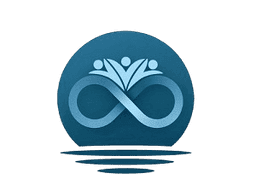
The Accessibility Research Center, IIT Madras

Centre for Disability Studies, NALSAR University of Law Hyderabad
Accessibility Partners
Deepa Palaniappan (Consultant for Disability Team, Azim Premji University, Bengaluru)
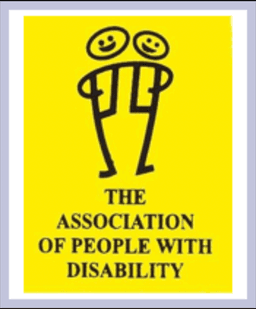
Association of People with Disability
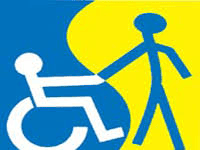
Telangana Vikalangula Cooperative Corporation Braille Press
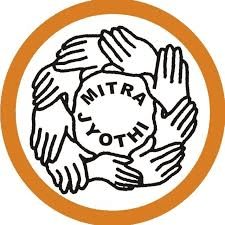
Mitrajyothi, Bangalore
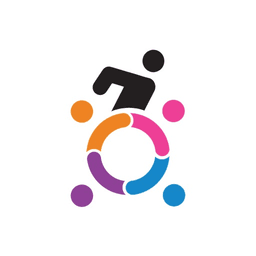
Yes to Access and Access Audit training by APD, Association of People with Disability
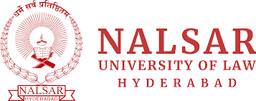
Convention Center, NALSAR University of Law Hyderabad

TRINAYANI

Spacefelt Accessibility Solutions
Sign Language Interpreters
Deepa Kesavan
(Independent Sign Language Interpreter)
Maurya Kesavan
(Independent Sign Language Interpreter)